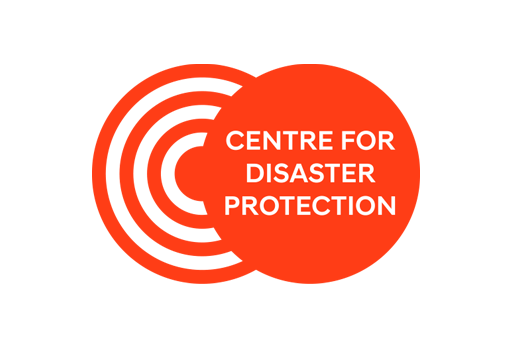A Devex event in partnership with DAI and the Centre for Disaster Protection
COP out or radically change the way the world pays for disasters
November 9, 2021 — 5:00 p.m. GMT | 12:00 p.m. ET
WatchAbout the Event
Extreme weather events and natural hazards are on the rise worldwide due to climate change. Between 2000 and 2019, their number surged by 75% compared with the previous 20 years, claiming 1.2 million lives and causing $3 trillion in economic losses.
The international community is struggling to match up the funding needed to prepare for, respond to, and rebuild from disasters. And where money is available, it is slow to reach affected communities, ultimately increasing the time and cost of recovery, and not always going where it is needed the most.
Unless the system we use to pay for disasters is adapted to meet the modern challenges of today, vulnerable communities will be kept in a vicious circle of poverty, making long term development progress – including the protection of biodiversity – impossible. While we already have the technology and skills to predict most disasters, funds are normally only sought after a disaster has already hit. Looking at 9 recent disasters, just 2.3% of the total funding was agreed up front, despite most of the disasters having been predicted.
The longer you leave a crisis, the bigger it grows and the more funds are ultimately needed to help recovery. Through pre-arranged finance, much needed money can reach those on the frontline faster – early response has been shown to as much as triple the cost-efficiency of disaster response.
This event, hosted by Devex in partnership with DAI and the Centre for Disaster Protection on the occasion of COP26, examines how international and local actors can work together to create mechanisms for pre-agreed financing to ensure more timely, efficient, and agile disaster response. Drawing on the work of the Crisis Lookout Coalition, it will also explore how a new global agreement for crisis protection can help identify priority risks, help people adapt, and make sure they have the funds they need when it matters most.
Schedule
05:00 p.m. GMT
Opening remarks by Michael Igoe, Senior Reporter, Devex
05:05 p.m. GMT
Fireside chat
Speakers:
• Kara Devonna Siahaan, Head of the Anticipation Hub, IFRC
• Sophie Evans, Head of Country Programmes, Centre for Disaster ProtectionModerator:• Michael Igoe, Senior Reporter, Devex
05:17 p.m. GMT
Panel Discussion
Speakers:
• Ekhosuehi Iyahen, Secretary General, Insurance Development Forum
• Kaluki Paul Mutuku, Co-founder and Executive Director, Kenya Environmental Action Network
• Carter Brandon, Senior Fellow, World Resources InstituteModerator:• Michael Igoe, Senior Reporter, Devex
05:57 p.m. GMT
Closing Remarks by Michael Igoe, Senior Reporter, Devex
Speakers
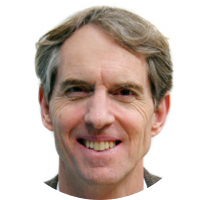
Carter Brandon
Senior Fellow, World Resources Institute
At WRI since early 2019, Carter Brandon works on the economics and finance of climate change adaptation. This includes how countries can achieve green and resilient recoveries from the COVID pandemic; how private firms can better price risk in financial markets; and how countries and donors can best address the impending debt crisis. He is also interested in nature-based solutions and prioritizing the management of critical natural assets. Prior to joining WRI, Carter had a 24-year career at the World Bank, culminating as Global Lead Economist for the Environment/Natural Resources and Climate Change Departments. His primary interests are in the linkages between environmental degradation, climate change, welfare, and growth. While at the World Bank, he also held various senior and management positions concerning the environment, agriculture, poverty, and climate change, including five years in Buenos Aires and four in Beijing. Earlier in his career, he started and ran the Development Economics Group, an economics consulting firm, for seven years. He also made a documentary film on political unrest in Chiapas, Mexico, and played bassoon in the Paris Symphony. He graduated from Harvard University (B.A.) and Oxford University (MSc and DPhil, ABD, Agricultural Economics), where he was a Rhodes Scholar.
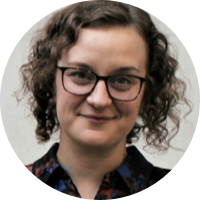
Sophie Evans
Head of Country Programmes, Centre for Disaster Protection
Sophie is a specialist in risk, climate, and innovative financing, having led strategic global projects from within the private sector for partners including governments, multilaterals, and international corporations. Within the leadership team of the center for disaster protection, Sophie is responsible for leading the operational work in low- and middle-income countries. She has a BSc in International Relations and Politics from Oxford Brookes University, an MA in Intelligence and International Security from King’s College London, and completed her legal qualifications in 2017.
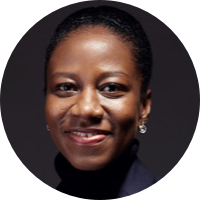
Ekhosuehi Iyahen
Secretary General, Insurance Development Forum
Ekhosuehi Iyahen is the secretary general of the Insurance Development Forum, a public-private partnership led by the insurance industry and supported by the World Bank and the United Nations, aiming to enhance the use of insurance to build greater resilience against disasters and to help achieve the U.N. 2030 Agenda. Ekhosuehi has extensive experience in a range of finance and private and public sector areas and was directly involved in establishing and operationalizing two globally pioneering initiatives — the African Risk Capacity Agency and the Caribbean Catastrophe Risk Insurance Facility. She is a graduate of the London School of Economics and Political Science and Harvard University’s John F. Kennedy School of Government and was selected as a 2018 Rockefeller Foundation resident practitioner fellow. A citizen of both Nigeria and Barbados, she also serves as an adviser to a number of governments, international development agencies, private sector entities, and academic institutions on catastrophe/climate risk and loss and damage and the role of insurance and how governments in low- and middle-income countries are increasingly leveraging insurance instruments in innovative ways to match their risk financing needs.
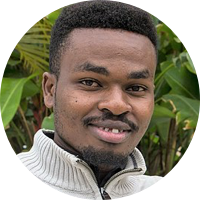
Kaluki Paul Mutuku
Co-founder and Executive Director, Kenya Environmental Action Network
Kaluki Paul Mutuku is a Kenyan-based climate advocate and environmental activist. He is the Africa regional director at Youth4Nature, a global youth-led organization that empowers youth to lead with solutions to the climate and nature crises. As co-founder and managing director at Kenya Environmental Action network, Kaluki has led in the installation of KEAN Bustani Gardens, a program designed to introduce and enhance conservation education across schools and communities in Kenya to meaningfully contribute to healthy food systems, environmental conservation, and sustainability.

Kara Devonna Siahaan
Head of the Anticipation Hub, IFRC
Kara Siahaan has over 15 years of experience in technical assistance, program management, advocacy, and partnership for governments, development agencies, the United Nations, and the Red Cross Red Crescent network in the areas of disaster response, disaster risk reduction, and climate change adaptation. Kara leads the anticipatory action and disaster risk financing global work at the International Federation of Red Cross and Red Crescent Societies, including the coordination of forecast-based financing work in 30 countries. She co-led the development of the Forecast-based Action by the Disaster Relief Emergency Fund, a global funding mechanism to enable predictable financing for local early action. She has recently been appointed as the head of the anticipation hub, a knowledge and exchange platform to support scientists, practitioners, and policymakers in scaling up anticipatory action worldwide.

Michael Igoe
Senior Reporter, Devex
Michael Igoe is a Senior Reporter with Devex, based in Washington, D.C. He covers U.S. foreign aid, global health, climate change, and development finance. Prior to joining Devex, Michael researched water management and climate change adaptation in post-Soviet Central Asia, where he also wrote for EurasiaNet. Michael earned his bachelor's degree from Bowdoin College, where he majored in Russian, and his master’s degree from the University of Montana, where he studied international conservation and development.


